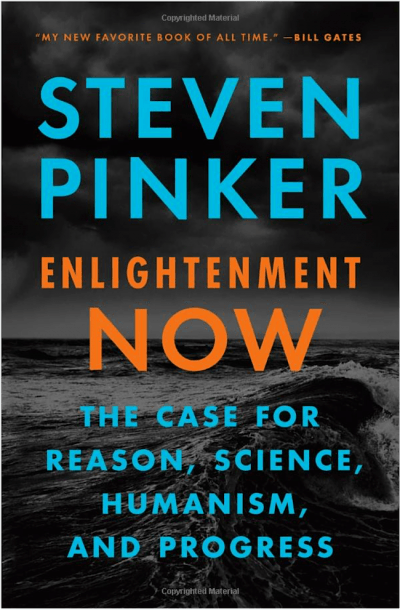Summary: Enlightenment Now

Capture
The world is far better than people think it is
These book summaries are designed as captures for what I’ve read, and aren’t necessarily great standalone resources for those who have not read the book. Their purpose is to ensure that I capture what I learn from any given text, so as to avoid realizing years later that I have no idea what it was about or how I benefited from it.
There is plenty of data to show this
There are many reasons to be optimistic
People really suck at predictions
There is a group of people called superforecasters who are great at it, and the have a very specific set of characteristics
They are in the top 20% of intelligence, but don’t have to be at the very top
Comfortable thinking in guestimates
They have the personality trait of Openness (which is associated with IQ, btw)
They take pleasure in intellectual activity
They appreciate uncertainty and like seeing things from multiple angles
They distrust their gut feelings
Neither left or right wing
They’re not necessarily humble, but they’re humble about their specific beliefs
They treat their opinions as "hypotheses to be tested, not treasures to be guarded"
They constantly attack their own reasoning
They are aware of biases and actively work to oppose them
They are Bayesian, meaning they update their current opinions with new information
Believe in the wisdom of crowds to improve upon or discover ideas
They strongly believe in the role of chance as opposed to fate
Lessons
Don’t let the way you feel, which is influenced by your local surroundings and the media you consume, affect your overall opinion of how things are doing
My analysis and takeaways
I ended up loving this book, but thought the beginning was far too positive
It seemed to me that Pinker was (and perhaps still is) telling us reasons we should be happy, not reasons we are happy
I’m not confident his happiness data are going to hold up in the last 2 years or so, especially in the US
I’m not sure he’s taken into account the CDC number of 30% increased suicides since 1999, for example
Ultimately, I think all his optimism is predicated on people being educated enough to know how good the rest of the world is, when most people in the US have no idea who fought in World War II, what the three branches of government are, etc.
In short, we’re far too stupid to be made happy by world stats that say life is improving, because we don’t read world stats.
[ Find my other book summaries here >. ]